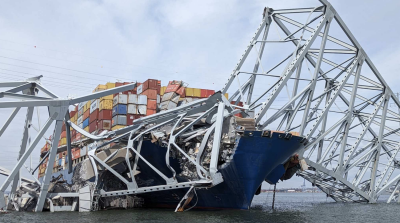The annual Yearbook issue of WorkBoat, due out later this month, again contains plenty of bad news from the oil patch. And you can add the inland waterways to the tepid side of the ledger. After enjoying several years of stable growth, operators have seen a cooling off in the main commodities moved by barge.
But as is usually the case, it is rare when all sectors of the workboat market face severe headwinds. One that stands out on the plus side is the tug market.
Powerful tugs are being designed for U.S. ports that anticipate the need to handle the new generation of bigger post-Panamax containerships coming from Asia through a widened Panama Canal. So shipyards are being called on to max out available power on the new tugs they build.
Also faring well are shipyards that are not overly dependent on revenue from the energy sector. This includes some Gulf of Mexico yards like Conrad Shipyard and Eastern Shipbuilding. Conrad has taken a hit from the sluggish oil patch, but the Louisiana yard is set to deliver the first dedicated LNG bunker barge in North America later this year. Conrad is also building other types of workboats, including an assortment of barges, ATB tugs, a towboat and a ferry. Eastern has built a bunch of OSVs in recent years and still has a few more to finish up, but its current orderbook includes Z-drive tugs, towboats, and an ATB dredge.
On both coasts and the Great Lakes, yards such as All American Marine, Vigor Industrial, Nichols Brothers Boat Builders, Blount Boats, and Bay Shipbuilding are busy with work.
The passenger vessel industry is another sector that has been on a roll. The last two years have been pretty good for dinner, excursion and inland cruise vessels, and this season looks even better. Passenger vessel operators say they are gradually seeing a return to the good old days before the recession.
So, depending on how you view it and what workboat sector you belong to, the glass is either half empty or half full.




